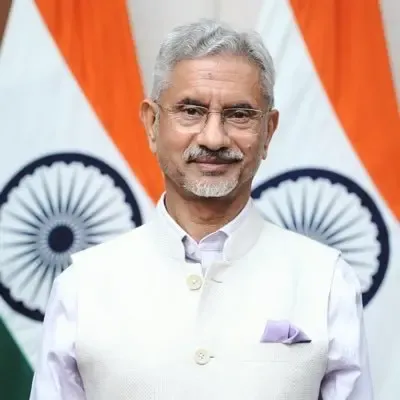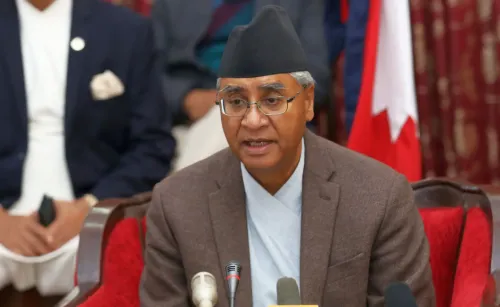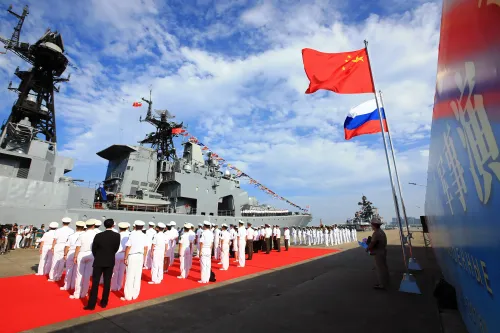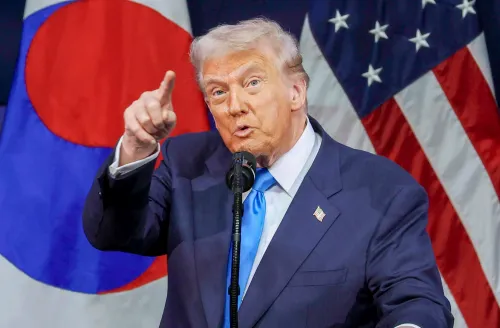Cambodia and Thailand Strengthen Trade Commitments
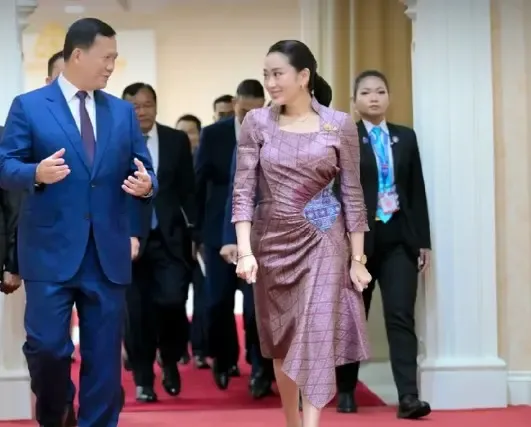
Synopsis
Key Takeaways
- Cambodia and Thailand are committed to expanding trade relations.
- The two countries aim for a trade target of $15 billion.
- Significant agreements were signed during the Thai PM's visit.
- Both nations focus on enhancing cross-border trade.
- RCEP provides a framework for economic collaboration.
Phnom Penh, April 25 (NationPress) Cambodia and Thailand continue to emphasize their commitment to enhancing trade relations despite global trade tensions, as stated by the Cambodian Foreign Ministry in a recent press release.
This commitment was established during a meeting between Cambodian Prime Minister Hun Manet and the visiting Thai Prime Minister Paetongtarn Shinawatra, as detailed in the press release issued on Thursday at the conclusion of Paetongtarn's two-day trip to Cambodia.
During her visit, PM Paetongtarn was welcomed at the Peace Palace in Phnom Penh and later participated in a plenary meeting with PM Hun Manet, according to reports from the Xinhua news agency.
The two leaders then oversaw the signing of significant agreements and jointly unveiled a logo commemorating the 75th anniversary of diplomatic relations between Cambodia and Thailand.
At a joint press conference, PM Paetongtarn expressed that the discussions with her Cambodian counterpart were both amicable and fruitful.
"We are united in our determination to enhance our collaboration rooted in mutual trust, mutual respect, and mutual benefit," she remarked.
On the topic of economic collaboration, the two Prime Ministers acknowledged with pleasure the significant growth in bilateral trade, which exceeded $10 billion for the first time last year, as noted in the press release.
"Building on this positive trend, the two leaders are targeting a trade goal of $15 billion in the near future," it stated.
They encouraged the appropriate institutions from both nations to consider organizing the seventh Cambodia-Thailand Joint Trade Committee meeting this year to further enhance trade relationships.
Furthermore, they agreed to direct relevant institutions to expedite the execution of cooperative projects and engage in discussions aimed at facilitating cross-border trade and fostering economic synergies, including through complementary special economic zones in border provinces, for the benefit of both nations, the press statement noted.
In a meeting with PM Paetongtarn on Wednesday, Cambodian Senate President Samdech Techo Hun Sen stated that as the world faces a trade war, it is vital for the two neighboring countries to boost their bilateral trade volume by utilizing existing mechanisms under ASEAN frameworks and the Regional Comprehensive Economic Partnership (RCEP) agreement.
The RCEP, which came into effect in 2022, includes 15 countries from the Asia-Pacific region, comprising 10 ASEAN member states—Brunei, Cambodia, Indonesia, Laos, Malaysia, Myanmar, the Philippines, Singapore, Thailand, and Vietnam—and their five trading partners: China, Japan, South Korea, Australia, and New Zealand.


